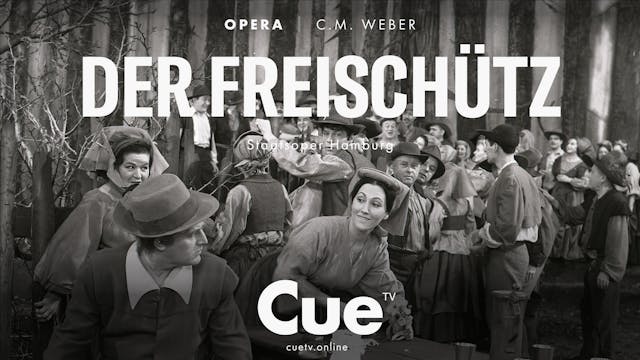Orphée aux enfers (1971)
Staatsoper Hamburg
•
Classics, Music
"Orpheus in the Underworld represents a quantum leap in Offenbach’s operetta output, for it would have been unthinkable to have created a stage work of such opulence and extravagance in Paris prior to that time. Strict regulations dating from the era of Napoleon I assigned to each of the city’s theatres a specific dramatic genre and a proportionate number of employees and performers. For Offenbach this meant writing for no more than three actors on stage at any one time. He openly flouted the regulations, however, ingeniously increasing his dramatic possibilities by adding puppets to his cast list and conveying what he had to say by means of banners held up by mute actors.
Then suddenly on 3 March, 1858, the stranglehold of theatrical regulations was lifted. Having ridden the tide of public demand with over 30 reduced-cast one-act operettas, Offenbach could at last deploy on stage as many singers, dancers, choirs, ballerinas, extras, costumes and properties as he wanted. The date fixed for the premiere of Orpheus in the Underworld was 21 October, 1858.
For the performance at the Hamburg State Opera, as well as for the television production of Offenbach’s Orpheus in the Underworld, Liebermann chose three performers whose immense popularity in theatre and film history speaks volumes: Liselotte Pulver, Inge Meysel and Theo Lingen."
Up Next in Staatsoper Hamburg
-
Zar und Zimmermann (1969)
"What better legacy could an opera-house director leave behind him than a string of excellent theatrical productions! Rolf Liebermann (1910-1999), who was actually a composer, certainly succeeded in doing this – particularly during the 14 years from 1959 to 1973 that he spent in charge of Hamburg...
-
Fidelio (1968)
If not at the beginning of the opera, then surely with the well-known prisoner chorus “O welche Wonne!” everybody will recognise the outstanding quality of this Fidelio. Leonore’s “Töt erst sein Weib!”, sung by the soprano Anja Silja, is only one out of many deep emotional moments of this studio ...
-
Der Freischütz (1968)
"In June and July 1967 the opera ensemble toured North America, with visits to the World Exposition in Montreal (Canada) and New York. In addition to six modern works (including Jenufa and Mathis der Maler) the programme also featured Der Freischütz, which according to Liebermann “was virtually u...



